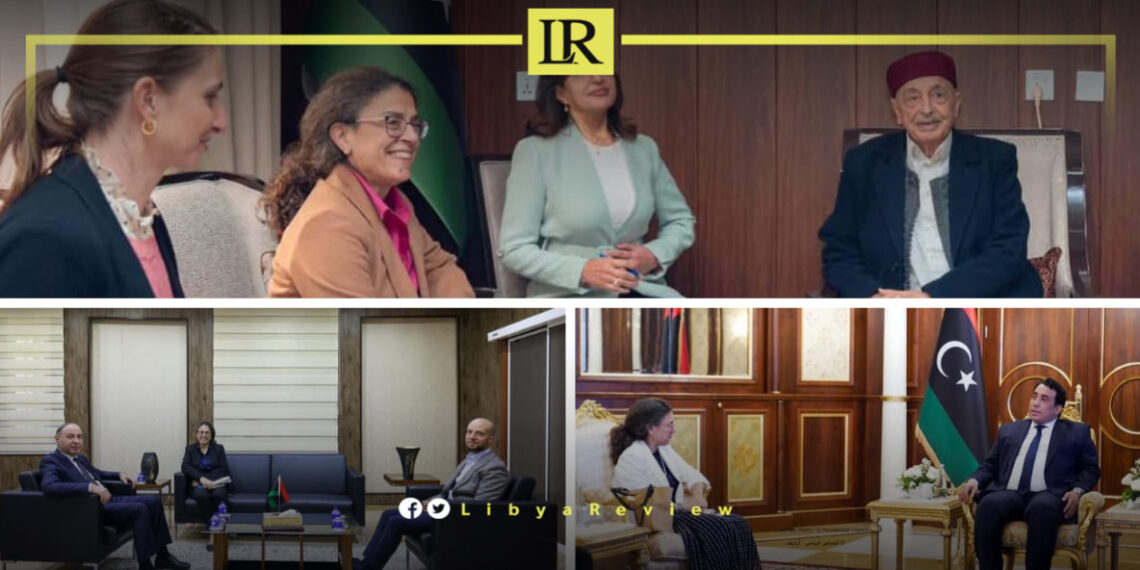The United Nations Support Mission in Libya (UNSMIL) announced that the Acting Head of Mission Stephanie Khoury has intensified consultations with Libya’s key political stakeholders, aiming to revive the political process, rebuild trust, and make tangible progress toward holding national elections.
Over the past week, Khoury has engaged with Libya’s leading figures, including Parliament Speaker Ageela Saleh, Presidential Council head Mohamed Al Mnifi, and interim Prime Minister Abdul Hamid Dbaiba. These discussions have focused on fostering unity, avoiding unilateral actions, and addressing unresolved political challenges.
In a significant meeting on Monday in Al-Qubbah, Khoury and Ageela Saleh agreed on the importance of unifying Libya’s executive branch and adopting a single, transparent budget for 2025. Both emphasized that a unified fiscal framework is essential to limit wasteful spending and restore trust in governance. Khoury reaffirmed the UN’s readiness to facilitate a political resolution that prioritizes the broader interests of the Libyan people.
Khoury’s recent engagements come at a critical moment for Libya. Political divisions between the eastern and western administrations, coupled with delays in implementing an electoral roadmap, have left the country in a prolonged state of uncertainty. Rival institutions, including competing executive branches led by Abdul Hamid Dbaiba and the eastern parliament’s appointee, have further complicated governance.
The UN’s intensified efforts aim to prevent actions that could deepen institutional rifts, such as unilateral moves by any party. By fostering constructive dialogue, Khoury is working to establish a foundation for credible elections that Libyans have long awaited.
The role of Libya’s key leaders, including Ageela Saleh and Mohamed Al Menfi, remains crucial in bridging the gaps and steering the nation toward unity. Achieving institutional cohesion, particularly within the executive branch, is viewed as essential for creating conditions conducive to elections and long-term stability.
Khoury’s mission underscores the urgency of overcoming Libya’s political deadlock and ensuring a unified approach to governance.
This renewed push for dialogue and unity is critical for ending years of institutional fragmentation and paving the way for a stable, prosperous Libya.


